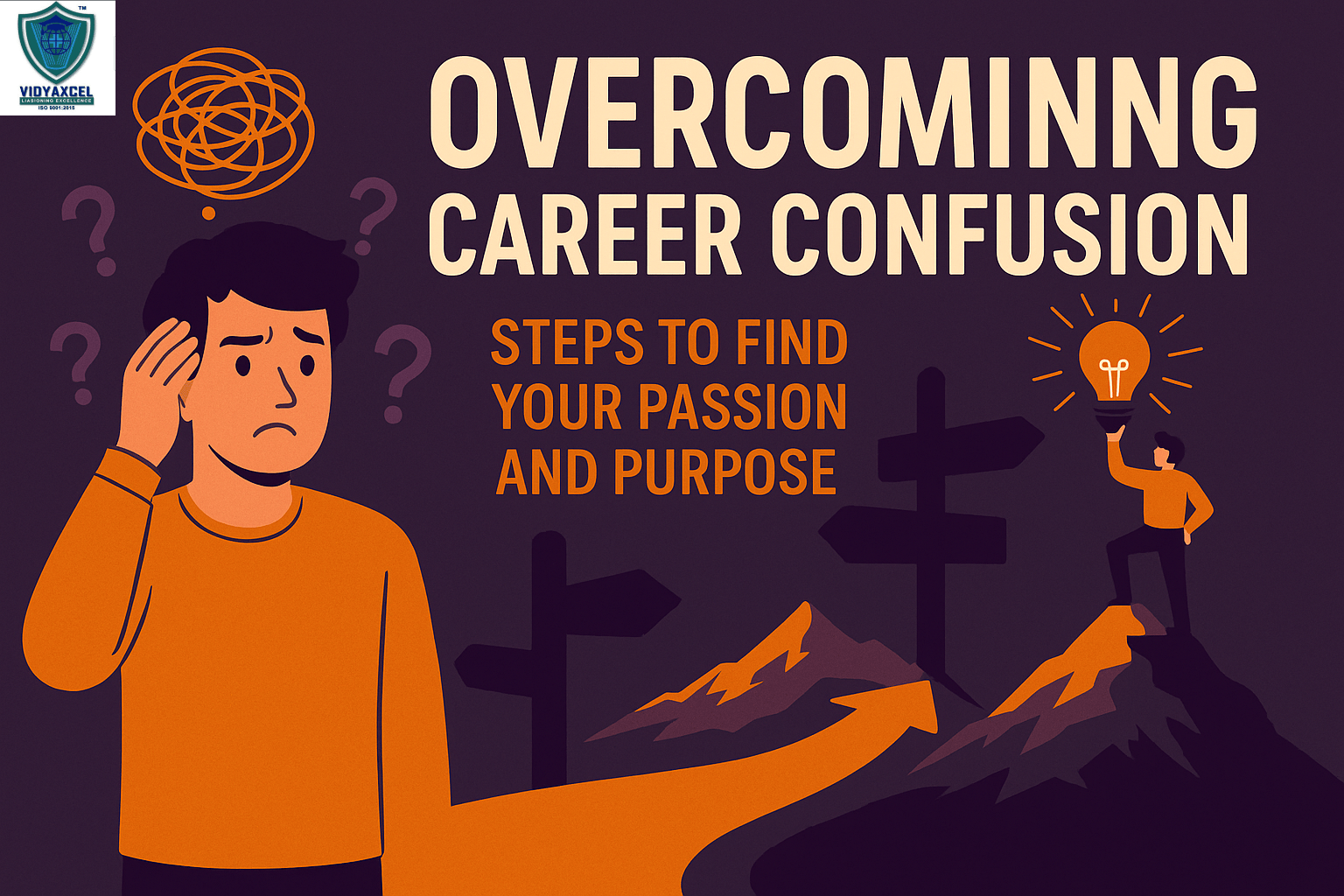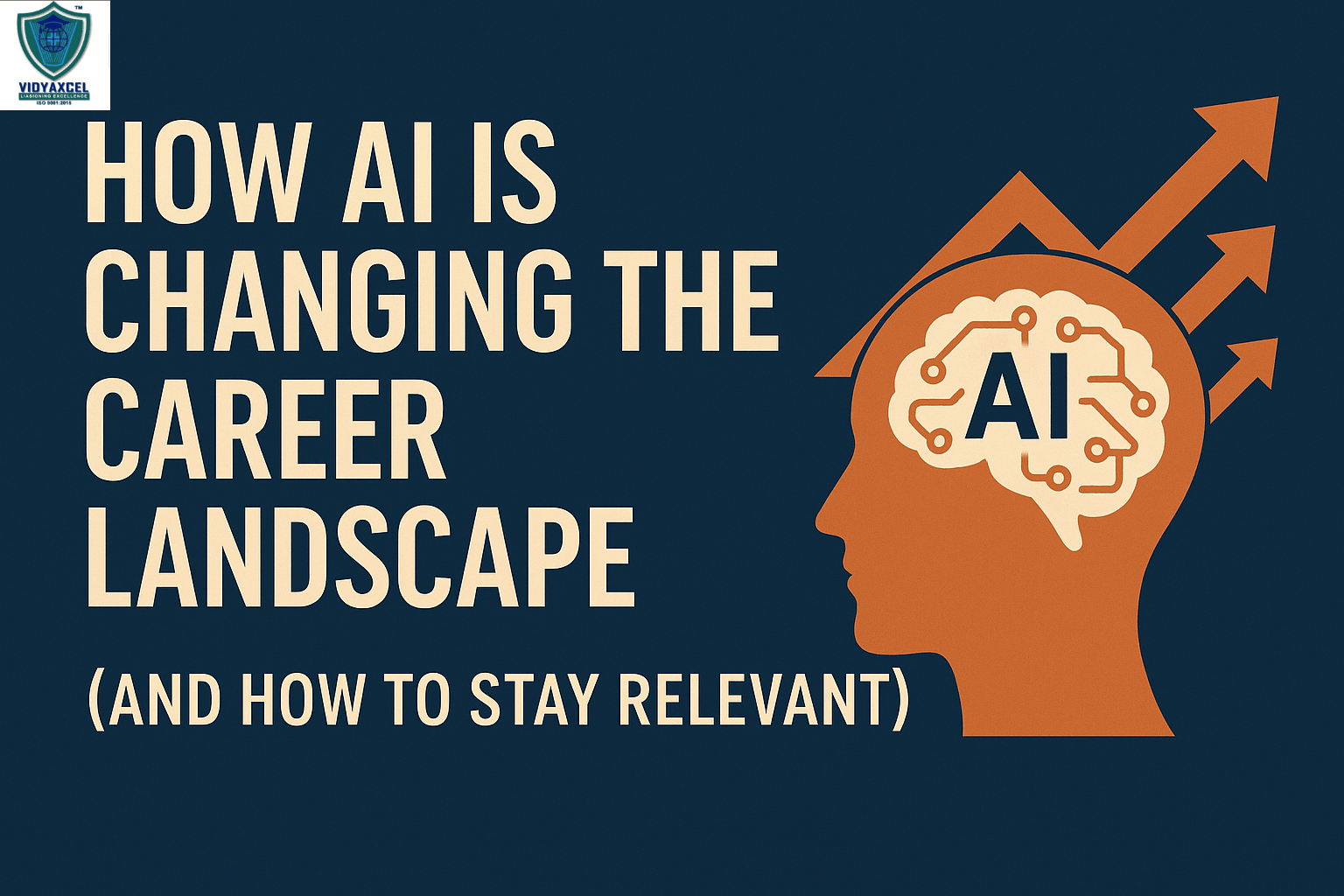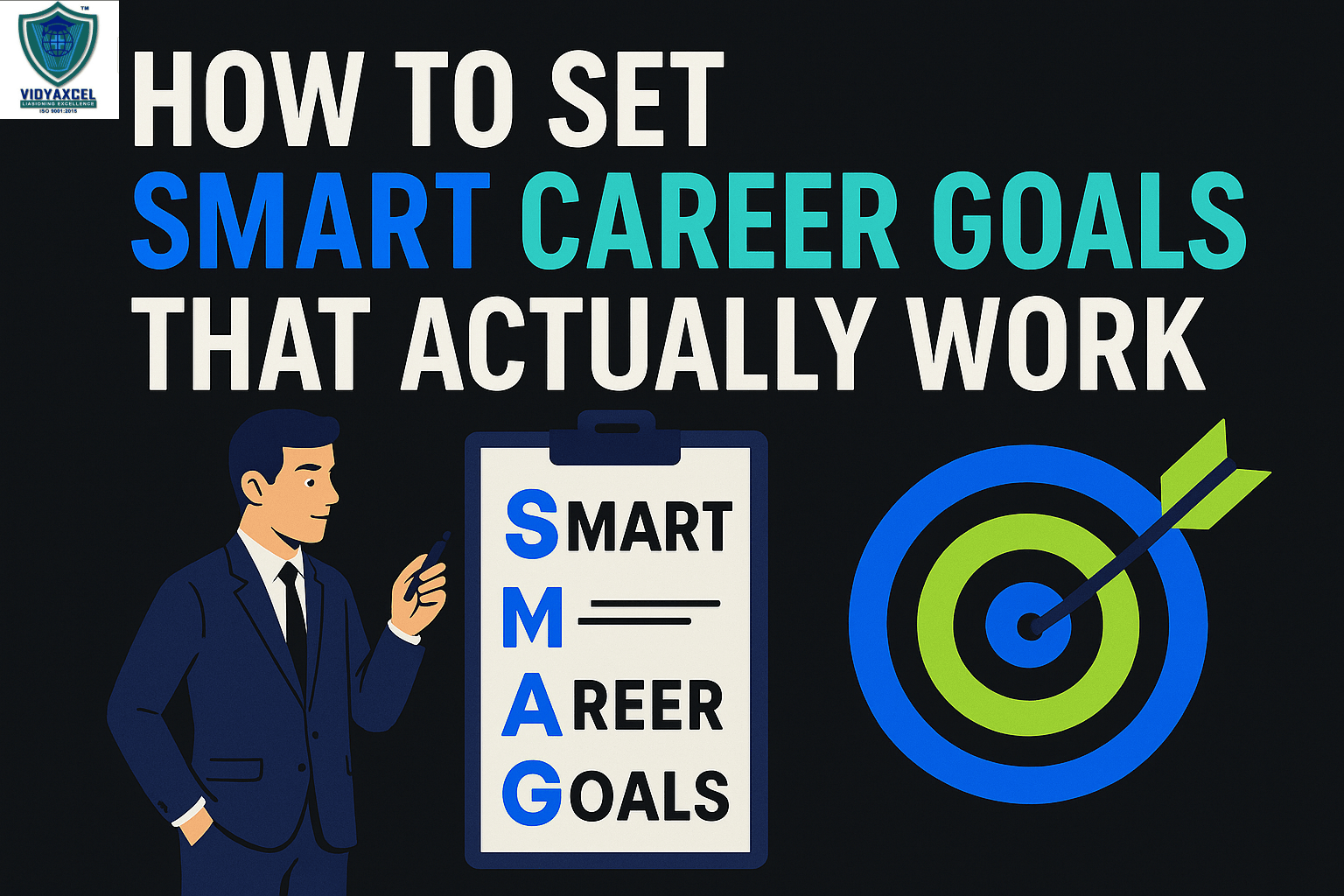Blog Details

06Jun
Overcoming Career Confusion: Steps to Find Your Passion and Purpose
The modern world is full of opportunities—and paradoxically, that abundance can lead to anxiety. With hundreds of possible careers, the pressure to "find your passion" or "choose the right path" can feel overwhelming. But here’s the truth: career confusion is not a roadblock; it’s a signal to pause, realign, and dig deeper into yourself.
Understanding Career Confusion
Career confusion occurs when you're uncertain about what career to pursue or whether your current path is right for you. It can manifest as:
- Anxiety over job choices
- Lack of motivation
- Frequent second-guessing
- Job-hopping or academic indecision
It doesn’t only affect students; professionals of all ages can face this confusion at any stage.
Causes of Career Confusion
Some common triggers include:
- Parental or societal expectations
- Too many options (analysis paralysis)
- Lack of self-awareness
- Mismatched skills and job roles
- Fear of failure or judgment
- Burnout or dissatisfaction
- Changing interests over time
Understanding what’s causing the confusion is the first step toward resolving it.
The Importance of Finding Passion and Purpose
While a job pays the bills, a career aligned with passion and purpose brings:
- Long-term satisfaction
- Greater engagement and productivity
- Stronger mental well-being
- A clearer sense of identity
- Resilience during tough times
Passion fuels your energy, and purpose gives direction to that energy.
Signs You’re Facing Career Confusion
You might be career-confused if:
- You dread going to work or college
- You’re constantly questioning your career choices
- You feel envious of people who seem to "have it all figured out"
- You frequently change your goals or fields of interest
- You feel lost or disconnected from your work
These feelings are valid—and they’re also fixable.
Step-by-Step Guide to Overcome Career Confusion
Step 1: Pause and Reflect
Take time away from the noise—stop comparing, scrolling, and overthinking.
Ask yourself:
- What’s not working for me right now?
- Am I feeling confused because of others’ expectations?
A clear mind is the foundation of clear decisions.
Step 2: Identify Your Interests
Think about:
- What topics do you naturally gravitate toward?
- What could you do for hours without feeling bored?
Use tools like:
- Holland Code (RIASEC)
- Passion assessments
- Journaling
List 5–10 areas you genuinely enjoy, whether it’s science, storytelling, organizing, mentoring, or problem-solving.
Step 3: Explore Your Strengths
Passion without strength can lead to frustration. Identify:
- Natural talents
- Soft skills (communication, leadership)
- Hard skills (coding, design, writing)
Take a strengths assessment (e.g., Gallup StrengthsFinder) or ask friends/mentors what they think you excel at.
Step 4: Understand Your Values
Values are the non-negotiables in your work life. These could include:
- Creativity
- Work-life balance
- Impact on society
- Financial security
- Growth opportunities
Clarifying values helps narrow down career paths that align with your inner compass.
Step 5: Research and Explore Options
Once you know your interests, strengths, and values, explore how they align with real-world careers.
Use resources like:
- LinkedIn career paths
- YouTube day-in-the-life videos
- Informational interviews
- Job shadowing
List out 5-10 careers that resonate with your personal profile.
Step 6: Seek Guidance and Mentorship
You don’t need to figure it all out alone.
- Talk to career counsellors
- Join professional groups
- Reach out to alumni or industry experts
- Use platforms like MentorCruise, GrowthMentor, or even college career services
A mentor can help you avoid common pitfalls and guide you with real-world insights.
Step 7: Experiment with Real-World Exposure
Trying is better than guessing.
- Take internships
- Volunteer in different sectors
- Freelance or start side projects
- Enroll in online courses and participate in industry challenges
These experiences offer firsthand insight into what you love—and what you don’t.
Step 8: Set Clear Short-Term Goals
Don’t fixate on your “forever career.” Instead, focus on:
- What can I try next?
- What skill do I want to build this month?
Short-term clarity leads to long-term direction.
Examples:
- “Take a 4-week data analytics course.”
- “Intern with a local NGO for social impact exposure.”
Step 9: Accept Iteration as a Process
Career clarity is not a one-time discovery—it’s an evolving journey. Even people with “dream jobs” reassess and pivot.
Allow yourself the grace to try, fail, and refine:
- Reflect after every experience
- Maintain a career journal
- Redefine success based on your growth
Step 10: Create an Action Plan
Convert insights into action. Your plan should include:
- 3–5 career options you're actively exploring
- A skill-building roadmap
- A 6-month and 12-month action goal
- A mentor or accountability partner
Make it visible and review progress monthly.
Tools and Resources to Help You Find Career Clarity
|
Tool Type |
Examples |
|
Self-assessment |
16Personalities, MyNextMove, CareerExplorer |
|
Strengths Finder |
Gallup CliftonStrengths, HIGH5 Test |
|
Career Mapping |
Indeed Career Guide, LinkedIn Career Explorer |
|
Skill Development |
Coursera, Udemy, Skillshare, Google Career Certificates |
|
Mentorship Platforms |
ADPList, GrowthMentor, MentorCruise |
Role of Parents in Helping Children Navigate Career Confusion
Parents play a crucial role in either amplifying or alleviating career confusion.
What Parents Can Do:
- Encourage exploration over early specialization
- Ask open-ended questions rather than giving answers
- Avoid projecting personal regrets onto the child
- Celebrate efforts, not just achievements
- Support internships, workshops, or travel experiences that expand perspective
What Parents Should Avoid:
- Forcing traditional paths (doctor, engineer, etc.)
- Overemphasizing income over interest
- Comparing children with others
Support, not pressure, is the key to helping children find their own path.
Case Studies: Real Stories of Overcoming Career Confusion
Case 1: Riya (Age 19, Student)
Riya began college in engineering but felt disconnected. With her parents’ support, she explored psychology through online courses and internships. She later transitioned into a career in mental health advocacy.
Key Lesson: Exploration led to a more fulfilling and aligned path.
Case 2: Arjun (Age 32, Mid-career Professional)
Arjun had spent 8 years in sales but felt emotionally exhausted. Through mentorship and career coaching, he realized his passion for teaching. He completed a diploma in education and now teaches business at a local college.
Key Lesson: It's never too late to realign your career with your purpose.
Case 3: Neha (Parent)
Neha pushed her daughter toward medicine. However, her daughter thrived in performing arts. Neha eventually accepted her child’s passion and helped her enroll in a performing arts college. Today, her daughter performs globally.
Key Lesson: Letting go of parental expectations opens space for true potential to emerge.
Conclusion
Career confusion is not a dead-end; it’s a detour toward self-discovery. Passion and purpose aren’t found overnight. They’re uncovered through trial, self-reflection, and courage to step beyond comfort zones.
Whether you’re guiding a young student or navigating your own crossroad, remember:
- It’s okay to be uncertain.
- It’s okay to change your mind.
- What matters is progress, not perfection.
Every experience teaches something. And every step, no matter how small, brings you closer to clarity.
FAQs
Q1: Is it normal to feel confused even after choosing a career?
Answer: Yes, confusion can arise at any stage. Your interests and values evolve over time, and it’s okay to reassess.
Q2: How can I help my child who is unsure about their career?
Answer: Support them in exploring various fields. Encourage internships, courses, and career counseling without enforcing rigid choices.
Q3: I have multiple interests. How do I choose one?
Answer: You don’t need to choose just one. Start by trying projects in each area and see what resonates more. Over time, clarity will emerge.
Q4: How do I know if a career aligns with my purpose?
Answer: A career aligned with your purpose will energize you, feel meaningful, and match your values. It may not be perfect, but it will feel right most of the time.
Q5: What if I make the wrong choice?
Answer: There’s no such thing as a completely wrong choice. Every path teaches you something. Be open to learning and pivoting as needed.
Our Office: West Bengal, Maharashtra & Delhi.
For More Infomation about admission in Medical, Engineering, Management & Study in Overseas Details.
View Current Study Overseas, Medical, Engineering & Management Admission Details Video.




